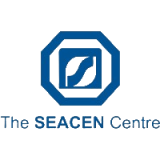This paper traces the differences in some selected South East Asian countries (SEACEN) accounting system involving overseas workers remittances (OWRs) in their respective balance of payments and the incentive schemes to the relative importance of OWRs to the current account within the broad context of on-going liberalization and deregulation in the region. The countrys stage of development is a very important factor to consider. Focus is then given to the Philippine experience which has been characterized by a strong bias of central bank policies in favor of overseas workers. A point is argued at the end of the paper that it pays the banking system to tap this rich source of foreign exchange.
-
About Us
-
Events
-
Publications
-
About The SEACEN Centre
-
The Centre's Governance
-
Courses
